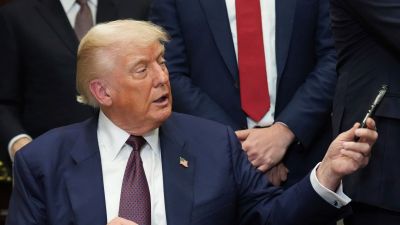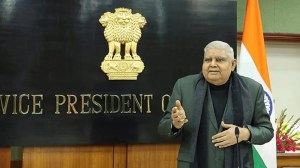Greater Bengaluru Authority takes over as BMLTA’s role in urban mobility diminishes, experts warn of consequences
The Greater Bengaluru Governance Act positions GBA as the apex body for urban governance, with binding authority over agencies like the BMTC, BMRCL, and other urban development agencies previously coordinated by Bengaluru Metropolitan Land Transport Authority.
 The BMLTA, meant to unify transport planning, is sidelined—its executive head is merely an invitee without voting rights. (Source: File)
The BMLTA, meant to unify transport planning, is sidelined—its executive head is merely an invitee without voting rights. (Source: File)With Karnataka Governor Thawar Chand Gehlot giving assent to the Greater Bengaluru Governance Bill (GBGB) 2024, the IT capital is set to usher in the Greater Bengaluru Authority (GBA), which has sweeping powers to streamline governance in the urban region. However, urban mobility experts and civic groups have pointed out that the transformation comes at the cost of diluting the powers of an autonomous body such as the Bengaluru Metropolitan Land Transport Authority (BMLTA) that oversees planning and coordinating transport in the Bengaluru Metropolitan Area.
More than two years have passed since BMLTA was notified, yet the Act remains on paper, with no rules being framed or no members being formally appointed.
The Greater Bengaluru Governance Act (GBGA) positions the GBA as the apex body for urban governance, with binding authority over agencies like the Bangalore Metropolitan Transport Corporation (BMTC), Bengaluru Metro Rail Corporation Limited (BMRCL), and other urban development agencies previously coordinated by the BMLTA.
Satya Arikutharam, urban mobility expert, said, “The GBGA dilutes the core functions of BMLTA and makes it an ineffective institute even before its establishment. The city will miss the rigorous and independent review specified under Section 19 of BMLTA before approval for major urban transport projects.”
GBGA explicitly transfers several BMLTA provisions to the GBA. Under its planning functions, the GBA is designated as the ‘Planning Authority’ for the Greater Bengaluru area under the Karnataka Town and Country Planning Act, 1961. This includes approving layouts and ensuring compliance with the master plan, roles that previously intersected with the BMLTA’s efforts to align land use with transport planning. The GBA’s oversight of the Bengaluru Metropolitan Planning Committee (BMPC), chaired by the Chief Minister, further consolidates its planning authority, potentially marginalising the BMLTA’s input in metropolitan transport strategies.
The GBA, chaired by Chief Minister Siddaramaiah, is tasked with overseeing up to seven municipal corporations carved out of the Bruhat Bengaluru Mahanagara Palike (BBMP). Its functions span administrative control, urban planning, coordination of public authorities, and execution of major infrastructure projects, including mobility plans.
Major infrastructure projects, including vehicular tunnels proposed under the Brand Bengaluru initiative, upcoming Metro networks, and other urban infrastructure plans, require approval from BMLTA as specified under Section 19 of the Act. Under Section 19, the Act ensures that the authority will have the power to approve all major urban transport projects proposed from the perspective of consistency with the Comprehensive Mobility Plan and in a time-bound manner. It further states that no authority, agency, or department under the state government shall initiate any public, private, or public-private partnership project concerning urban mobility without obtaining prior approval of the authority.
BBMP, in its government order in September 2024, acknowledges the approval of BMLTA for an underground vehicular tunnel connecting Hebbal and Silk Board and other proposed elevated corridors.
Experts point out that with the establishment of a ‘centralised’ authority like GBA, it assumes significant responsibilities previously held by the BMLTA, such as formulating mobility plans and coordinating agencies like BMTC, BMRCL, Urban Development department and other agencies.
No clear sequence of process on land use: Experts
Arikutharam said that as per GBGA coordination between BMRCL and BMTC, the preparation of Mobility Plan, and formulation of major infrastructure projects – all core BMLTA functions – will now be undertaken by Greater Bengaluru Authority. “This has serious negative consequences for sustainable urban mobility as GBA is designed for unfettered real estate development,” he pointed out.
Further, GBA integrates and supervises public authorities such as BMTC, BMRCL, and Bangalore Development Authority (BDA), issuing binding directions to streamline municipal and transport activities, and provisions that BMLTA was also entrusted with.
GBA also formulates and executes major infrastructural projects, including mobility-related plans (e.g., roads, tunnels), directly or through Special Purpose Vehicles (SPVs), coming close on the heels of the functions of an autonomous BMLTA. BMLTA also has the power to issue directives to transport agencies to align operations with the CMP goals and sustainable mobility objectives.
The GBA’s ability to establish Geographical Information Systems (GIS) and Intelligent Transport Systems (ITS) also overlaps with the BMLTA’s initiatives for technology-driven mobility solutions.
A Krishna Prashanth, member at CIVIC Bangalore, said, “From a constitutional and legal standpoint BMLTA is essentially a planning body that helps build a transit-oriented development plan coupled with land use plan. When GBA assumes this role, the transport plan will not hold any value. The Greater Bengaluru Governance Act is unclear on the process of implementing transport and mobility projects. There is no clear sequence of process as to who will assess the land use, waste management, and other aspects.”
Secondly, he said, the previous Finance Commission mandated that BMLTA works in line with the Metropolitan Planning Committee (MPC), which is democratic and consultative. “However, GBA neither allies with this nor any urban transport policy envisioned by the central government. Moreover, it is not clear where BMLTA sits in the large scheme of things under GBA,” he said.
However, an officer in the state government, on condition of anonymity, told The Indian Express that, “BMLTA is not dropped, it will be formally constituted in the coming days. However, with GBA, a lot of the latter’s functions align with those of BMLTA. Hence, there is a conflict of interest.”
According to Sandeep Anirudhan, convenor of Citizens’ Agenda for Bengaluru, the Greater Bengaluru Governance Bill is poorly drafted and undermines critical planning institutions. “The constitutionally mandated Metropolitan Planning Committee remains defunct after 33 years, and now its role is usurped by the new Greater Bengaluru Authority. Similarly, the BMLTA, meant to unify transport planning, is sidelined—its executive head is merely an invitee without voting rights. This pattern of creating and then undermining institutions spells disaster, as vested interests exploit the city, pushing Bengaluru into unplanned, unsustainable collapse,” Anirudhan remarked.













